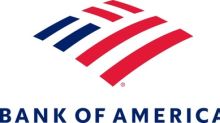Bank of America Corporation (BML-PL)
| Previous close | 22.20 |
| Open | 22.15 |
| Bid | 21.95 x 800 |
| Ask | 35.55 x 800 |
| Day's range | 22.15 - 22.36 |
| 52-week range | 19.31 - 22.70 |
| Volume | |
| Avg. volume | 15,095 |
| Market cap | 273.161B |
| Beta (5Y monthly) | 1.39 |
| PE ratio (TTM) | 6.31 |
| EPS (TTM) | 3.51 |
| Earnings date | N/A |
| Forward dividend & yield | 1.52 (6.85%) |
| Ex-dividend date | 30 Apr 2024 |
| 1y target est | N/A |
 Barrons.com
Barrons.comThe Push to Split CEO and Board Chair Roles Is Gaining Traction. What Comes Next.
On the face of it, Bank of America and Goldman Sachs annual shareholder meetings this week were uneventful—no blowout wins for long-shot proposals, no drawn-out battles with infamous activist funds. The two resolutions called on BofA and Goldman to implement policies to prevent the chief executive from also holding the title of board chair—both banks’ CEOs currently do—in the interest of sounder corporate governance and checks on power. While this has been a longstanding debate, what stands out is the increased support these proposals drew when shareholders’ votes were tallied on April 24.
 PR Newswire
PR NewswireBank of America Declares Second-Quarter 2024 Stock Dividends
Bank of America Corporation today announced the Board of Directors declared a regular quarterly cash dividend on Bank of America common stock of $0.24 per share, payable on June 28, 2024 to shareholders of record as of June 7, 2024.
 Yahoo Finance
Yahoo FinanceGoldman's David Solomon defeats vote on CEO-chair split even as support for it increases
David Solomon defeated a proposal seeking to separate his roles as CEO and chairman of Goldman Sachs, but the measure received double the support it did in 2023.